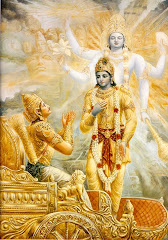

"Remember the Roses" is a magnificient love story and one of my all time favourite short story with a touch of romance, along with that excellent Erich Segal classic... "Love Story". I have read its sequel too... "Oliver's Story" *... but it does not come close to "Love Story"... my personal opinion, entirely. Not just a story - "Love Story" is an experience. It shows us the amazing power of love. This 120 page short novel made me laugh many times during the reading, and when I finished it, I had tears in my eyes. This book is a work of art, a masterpiece of literature... it has not lost its power to move its readers. The first Sentence: "What can you say about a twenty-five-year-old girl who died? That she was beautiful and brilliant. That she loved Mozart and Bach. The Beatles. And me." That first line, summarizes this phenomenal bestseller and enduring classic. There is also the memorable line: "Love means never having to say you're sorry". Spoken twice in this novel/book; once by Jennifer when Oliver is about to apologise to her for his anger. The second time, by Oliver... to his father when Mr. Barrett (his father) says, "I'm sorry" after hearing of Jennifer's death... at the hospital.
The storyline: "Love Story" is romantic and funny, yet a tragic story, that nearly 40 years ago had an entire generation in love and in tears... and still do. It is the story of 2 young college grads, whose love was stronger then any of the tests life threw at them. Oliver Barrett IV: a Harvard jock and a (very) rich scion or heir to the Barrett fortune and legacy. Jennifer Cavilleri: a working-class, quick-witted daughter of a Cranston, Rhode Island baker, with not much money, but lots of love. Oliver (Ollie) was expected to follow in his father's huge footsteps, while Jennifer (Jenny), a music major studying at Radcliffe College was to go on and study in Paris. Both come from very different worlds... opposites in nearly every way. But when they met, Oliver and Jenny immediately attract... the sparks flew, and we get involved with them as their love grows deep and strong. The story of Jenny and Ollie is a realistic story of two young people who come from two separate worlds and are joined together in the most unlikely of ways.
Upon graduation from college, the two decide to marry against the wishes of Oliver's father, who thereupon severs all ties with his son. Without his father's financial support, the couple struggles to pay Oliver's way through Harvard Law School... with Jenny working as a private school teacher. Graduating third in his class, Oliver gets several job offers and takes up a position at a respectable New York law firm. Jenny promises to follow Oliver anywhere on the East Coast. The couple moves to New York City, excited to spend more time together... rather than in working and studying... as it was previously. With Oliver's new income, the pair of 24-year-olds decide to have a child. It is from then onwards, that there are several unexpected twists and turns... that makes us smile and breaks our heart too. After failing (i.e., after Jenny fails to conceive), they consult a medical specialist, who after repeated tests, informs Oliver that Jenny is ill and will soon die. Oliver then tries again. While this is not stated explicitly, Jenny appears to be suffering from leukemia.
As instructed by his doctor, Oliver attempts to live a "normal life" without telling Jenny of her condition. Jenny nevertheless discovers her ailment after confronting her doctor about her recent illness. With their days together numbered, Jenny begins (costly) cancer therapy, and Oliver soon becomes unable to afford the multiplying hospital expenses. Desperate, he seeks financial relief from his father. Instead of telling his father what the money is truly for, Oliver misleads him. From her hospital bed, Jenny speaks with her father about funeral arrangements, and then asks for Oliver. She tells him to avoid blaming himself, and asks him to embrace her tightly before she dies. When Mr. Barrett realizes that Jenny is ill and that his son borrowed the money for her, he immediately sets out for New York. By the time he reaches the hospital, Jenny is dead. Mr. Barrett apologizes to his son, who replies with something Jenny had once told him: "Love means never having to say you're sorry"... before breaking down in his arms.
Jenny's character wins your heart as she unsuccessfully tries to thaw the relations between Oliver and his father, the way she spurs Oliver on (in law school studies, his hockey games) and so many more moments. The story is unique because of its many beautiful moments like Oliver's marriage proposal, Jenny's simplicity in thoughts, their supposedly do-it-yourself-wedding, etc. Jenny's final words are a simple, "Thanks, Ollie". Although the reader knows beforehand that Jenny is going to die, you somehow get so involved in the plot that you don't want her to leave Ollie... ever. The ending of the book is so simple and stark that many, including myself have had to reread the chapter to enforce the ending of the story. This story will provide imagery and wisdom, through the lessons of the characters, for many hours of inner contemplation.
There is a "Gift of the Magi" moment in this story: Oliver turns his back on his family and fortune to marry Jenny. Jenny gives up her dreams of Paris and being a musician. But to each other, there is nothing as important as the other in their lives. When life throws them a tragic turn, they find solace in each other arms, and the reader can not help but feel their pain and their deep love as well. Here is a love that will linger in your heart now and forever.
Yet another favourite is Ruskin Bond's short story... "The Eyes Have It"... Such a jem! It's the kind of story you want to read more than once.
The Storyline of "The Eyes Have It": It is also known as "The Girl on the Train" and "The Eyes Are Not Here". This is a short story by Ruskin Bond that was originally published in Contemporary Indian English Stories. The narrator of this story, a blind man whose eyes were sensitive only to light and darkness, was travelling to Dehradun by train when he met a girl who boarded the train at Rohana, and shared the same compartment with him. He struck up a conversation with her by asking, "Are you going all the way to Dehra?" He tries to conceal his blindness from the girl (maybe to ensure that she is interested in him, not his condition.) Here is what goes through his mind... "I wondered if I would be able to prevent her from discovering that I was blind. Provided I keep to my seat, I thought, it shouldn’t be too difficult."
And so, the 'deception' continues:
The girl said, "I'm getting off at Saharanpur. My aunt is meeting me there."
- "Then I had better not get too familiar," I replied. "Aunts are usually formidable creatures."
- "Where are you going?" she asked.
- "To Dehra, and then to Mussoorie."
- "Oh, how lucky you are. I wish I were going to Mussoorie. I love the hills. Especially in October."
- "Yes, this is the best time," I said, calling on my memories. "The hills are covered with wild dahlias, the sun is delicious, and at night you can sit in front of a logfire and drink a little brandy. Most of the tourists have gone, and the roads are quiet and almost deserted. Yes, October is the best time."
She was silent. I wondered if my words had touched her, or whether she thought me a romantic fool. Then I made a mistake.
- "What is it like outside?" I asked.
She seemed to find nothing strange in the question. Had she noticed already that I could not see? But her next question removed my doubts.
She seemed to find nothing strange in the question. Had she noticed already that I could not see? But her next question removed my doubts.
- "Why don't you look out of the window?" she asked.
I moved easily along the berth and felt for the window ledge. The window was open, and I faced it, making a pretence of studying the landscape. I heard the panting of the engine, the rumble of the wheels, and, in my mind's eye, I could see telegraph posts flashing by.
- "Have you noticed," I ventured, "that the trees seem to be moving while we seem to be standing still?"
- "That always happens," she said. "Do you see any animals?"
- "No," I answered quite confidently. I knew that there were hardly any animals left in the forests near Dehra.
I turned from the window and faced the girl, and for a while we sat in silence.
And continues...
- "You have an interesting face," I remarked. I was becoming quite daring, but it was a safe remark. Few girls can resist flattery. She laughed pleasantly – a clear, ringing laugh.
- "It’s nice to be told I have an interesting face. I'm tired of people telling me I have a pretty face."
Oh, so you do have a pretty face, thought I: and aloud I said: "Well, an interesting face can also be pretty."
- "You are a very gallant young man," she said, "but why are you so serious?"
I thought, then, I would try to laugh for her, but the thought of laughter only made me feel troubled and lonely.
- "We'll soon be at your station," I said.
- "Thank goodness it's a short journey. I can't bear to sit in a train for more than two-or-three hours."
Yet I was prepared to sit there for almost any length of time, just to listen to her talking. Her voice had the sparkle of a mountain stream. As soon as she left the train, she would forget our brief encounter; but it would stay with me for the rest of the journey, and for some time after.
... When the train arrived at her station:
- "Goodbye," the girl said.
She was standing very close to me, so close that the perfume from her hair was tantalizing. I wanted to raise my hand and touch her hair, but she moved away. Only the scent of perfume still lingered where she had stood.
She was standing very close to me, so close that the perfume from her hair was tantalizing. I wanted to raise my hand and touch her hair, but she moved away. Only the scent of perfume still lingered where she had stood.
There is a 'twist' in the tale... which the narrator realizes once she has alighted from the train and through (his conversations with) another passenger who comes into the compartment...
Link: This poignant story can be read at: http://pkramanathan.wordpress.com/2008/07/16/the-eyes-have-it-ruskin-bond/
I am extremely fond of the O. Henry (a pen name for William Sydney Porter) classic "The Gift of the Magi"... which was written allegedly at Pete's Tavern on Irving Place in New York City. Who has not read this story or heard of it at some time or the other in their lives... ??? It is a heartfelt tale of mesmerizing beauty. The emotions are so pure. The story is very simple and yet it moves the reader...
Plot: James Dillingham Young and his wife Della are a young couple who are very much in love with each other, but can barely afford their one-room apartment due to their very bad economic situation. Jim has suffered a thirty-percent pay cut, and the two must scrimp for everything. Jim and Della have two possessions of which they are both proud. One is Jim's gold watch, which has been handed down from his grandfather. The other is Della's hair, lustrous, shining, and falling past her knees. On the day before Christmas, Della counts the money she has painstakingly saved for months. She is dismayed to find she has less than two dollars, hardly enough to buy anything at all. After a good long cry, Della is determined to find a way to buy Jim the present he deserves. As she looks into a mirror, an idea comes to her...
For Christmas, Della decides to buy Jim a chain which costs twenty-one dollars for his prized pocket watch given to him by his father. To raise the funds, she has her long hair cut off and sold to make a wig. Meanwhile, Jim decides to sell his watch to buy Della a beautiful set of combs made out of tortoise shell for her lovely, knee-length brown hair. Although each is disappointed to find the gift they chose rendered useless, each is pleased with the gift they received, because it represents their love for one another. They were true soulmates for life.
The story ends with the author/narrator comparing the pair's mutually sacrificial gifts of love with those of the Biblical Magi**. "The Gift of the Magi" is one of O. Henry's most famous stories. Included in "The Four Million", his first collection of short stories, in 1906, it has been anthologized many times since then. The story contains many of the elements for which O. Henry is widely known, including poor, working-class characters, a humorous tone, realistic detail, and a surprise ending. A major reason given for its enduring appeal is its affirmation of unselfish love. Such love, the story and its title suggest, is like the gifts given by the wise men, called magi, who brought gold, frankincense, and myrrh to the newborn Jesus.
Link: This endearing story can be read at: http://www.auburn.edu/~vestmon/Gift_of_the_Magi.html
(Stay tuned...)
P.S. Plot summary of *"Oliver's Story": Oliver Barrett IV is emotionally devastated by the death of his wife Jenny, and while he tries to lose himself in his work as a lawyer, the long hours don't ease his pain, especially when he finds that his leftist views conflict with those of the senior partners at the firm. Eventually, Oliver's inconsolable grief begins to alienate those around him, until he finds new love with Marcie Bonwit, the wealthy and beautiful heir to the Bonwit Teller fortune. Despite his affection for Marcie, Oliver finds it difficult to leave the memory of Jenny behind, which causes major problems in his relationship with Marcie.
"Oliver's Story" is the sequel (1977) to the novel Love Story by Erich Segal, turned into a movie of the same name in 1978. The film's tagline is: "It takes someone very special to help you forget someone very special."
**The Biblical Magi: The "Magi", as you know, were wise men - wonderfully wise men - who brought gifts to the Babe in the manger. They invented the art of giving Christmas presents. Being wise, their gifts were no doubt wise ones, possibly bearing the privilege of exchange in case of duplication. And here I have lamely related to you the uneventful chronicle of two foolish children in a flat who most unwisely sacrificed for each other the greatest treasures of their house. But in a last word to the wise of these days let it be said that of all who give gifts these two were the wisest. Of all who give and receive gifts, such as they are wisest. Everywhere they are wisest. They are the "Magi".
Note: Some information gathered and photographs, courtesy Wikipedia.
Photographs:
1. A single red rose.
2. The cover of Erich Segal's classic "Love Story".
3. A butterfly sits on a flower... to suck honey.















Roshmi, kono bhabe ki TOSS boi tar baki golpo gulo pawa jabe ki...I mean tomar post gulo porar por ekhon oi goppo gulo porar ichha hoche ..."Monkey's Paw" tarpor "Mowgli's Brother" ettadi... I know u have misplaced the book...but anyway I'll keep checking this series of your post....
ReplyDelete@ Dhiman... Thanks a bunch!
ReplyDeleteEven I am walking down nostalgia lane... and trying my best to get those stories... links, soft copy, whatever...
Cheshta korchi. Lets see... Hopefully will get them.
Eyes Have It was one of my favs...
ReplyDelete@ Kaddu: Same here :)
ReplyDeleteIt was signature Ruskin Bond!